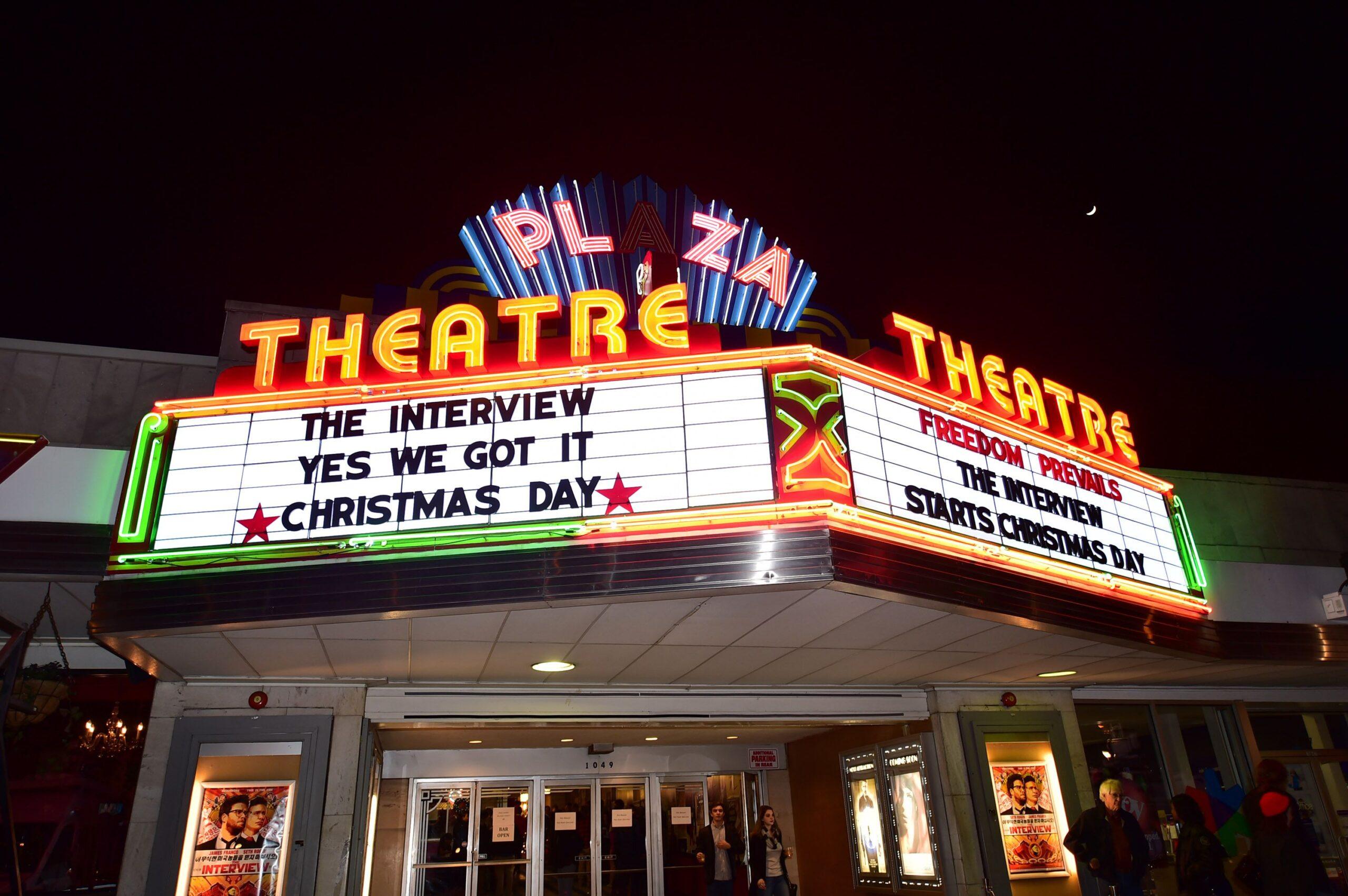The Hollywood Hack examines a rare moment in American history when the worlds of showbiz, politics, the media, and technology all collided. You can listen to the third and final episode of the series on the Big Picture feed. The following is an excerpt from Episode 3, in which an independent theater owner talks about a controversial decision to screen James Franco and Seth Rogen’s The Interview in the wake of the 2014 Sony hack.
For nearly 25 years, Toby Leonard has worked at the Belcourt Theatre in Nashville, Tennessee. The Belcourt was built in 1925—making it the oldest standing movie theater in Nashville. It’s got three screens, a devoted audience, and a pretty simple mission statement. “What we do is we show movies every day, day in, day out. Old movies, new movies … mostly good movies,” Leonard says.
The Belcourt specializes in new art house and indie films, as well as Hollywood classics. It’s not a place where you’d expect to find an expensive, star-driven studio comedy like The Interview.
For the 2014 holiday season, the Belcourt was planning to hold a retrospective of Frank Capra films—including It’s a Wonderful Life. But a few days before Christmas, an organization called Art House Convergence—which at the time represented about 250 screens—mounted an effort to show The Interview in indie theaters. In a letter to Sony, the organization said, “We understand there are risks involved.” But it claimed that releasing the movie would “keep our film industry free of restriction, censorship and violent intimidation.”
Soon, Leonard began hearing from people he knew at theaters across the country. They were feeling each other out to see whether playing The Interview was a good idea. And most of them were on board.
“This situation developed with The Interview becoming sort of this possible rallying point for independent theaters who had the wherewithal and the will to show the film,” Leonard says. When pressed about whether it felt like a rallying point to him, Leonard replies, “Can I just say it felt like one big goof? I had friends posting, like, you know—were memes a thing in 2014? Because it felt like … they were posting images of our theater with a mushroom cloud above it, you know, trying to get a rise out of me or something. … But it … didn’t feel threatening, really. It just kind of felt like something fun to do.”
Finally, on December 23, Sony reversed course, announcing that The Interview would now open on Christmas Day. The film would also be available to rent or buy online, thanks to a last-minute deal Sony struck with Google—making The Interview the first big-studio movie to debut in theaters and on streaming on the same day.
Later, Seth Rogen and Evan Goldberg would tell Vanity Fair that the studio’s change of heart was influenced, in part, by Barack Obama—that being scolded by the president “gave Sony the momentum they needed to get the movie out there.”
More than 300 theaters across the U.S. committed to showing The Interview—including the Belcourt. It all made for a hectic few days.
Leonard had about 48 hours to shift the theater’s schedule around. Meanwhile, as news got out that the theater would be showing the movie, emails began pouring in. Leonard read a few of them for me.
“‘Good luck with The Interview. We’re all behind you.’” he read. “That’s the sentiment of a few of these. Subject header: ‘You made me proud.’ ‘Toby, I’m certain that The Interview is probably not a film I’d ever care to see, or even needs to be seen by anyone until all this crap happened. Congratulations.’”
Those weren’t the only messages he received. Before The Interview opened, a Nashville FBI agent visited the theater. “He looked around, talked a lot about cybersecurity, and he just let us know, ‘If there’s anything you need …’” Leonard says. “It didn’t feel in any way serious. It felt more like a concerned citizen who probably comes to see movies here.”

Finally, on Christmas Day, Leonard headed to the Belcourt for the first screening of The Interview. The line was around the block. “The vibe was really—it was pretty strong for being in the morning.”
Leonard and a coworker came out to introduce the film and throw some T-shirts into the crowd. “The audience went wild. It felt like being a hype man for a film I hadn’t seen, which I hadn’t. And yeah, folks were ... it was really live.”
It got even livelier when Leonard gave his final send-off to the crowd: “I said, ‘America,’ and the whole audience goes, ‘Fuck yeah.’ First and last time I’ll ever do anything like that.”
That kind of enthusiasm—minus the fuck yeahs—was evident at screenings of The Interview across the country, many of which sold out. The movie had become an event. Rogen and Goldberg even showed up at a midnight screening in Los Angeles. Standing next to revelers dressed as Uncle Sam and Santa Claus, the two filmmakers addressed the crowd. “Thank you so fucking much for coming,” Rogen said. “We thought this might not happen at all.”
The Interview wound up making more than $1 million on Christmas Day. Admittedly, that was a tiny fraction of its budget, but not bad for a movie that, just a week before, had been all but dead. And those sold-out screenings were a Christmas gift to the indie theaters that showed the film. Including the Belcourt.
“I wanted to look at the money that we netted from The Interview and put it into a Robert Altman retrospective—which we wound up doing, just to use that money for some good,” Leonard says.
Ultimately, The Interview wound up making about $12 million worldwide at the box office. More importantly: There were no reports of violence associated with the film.
Host: Brian Raftery
Producers: Devon Baroldi, Brian Raftery, and Vikram Patel
Sound Design: Devon Renaldo
Mixing and Mastering: Scott Somerville
Subscribe: Spotify / Apple Podcasts
